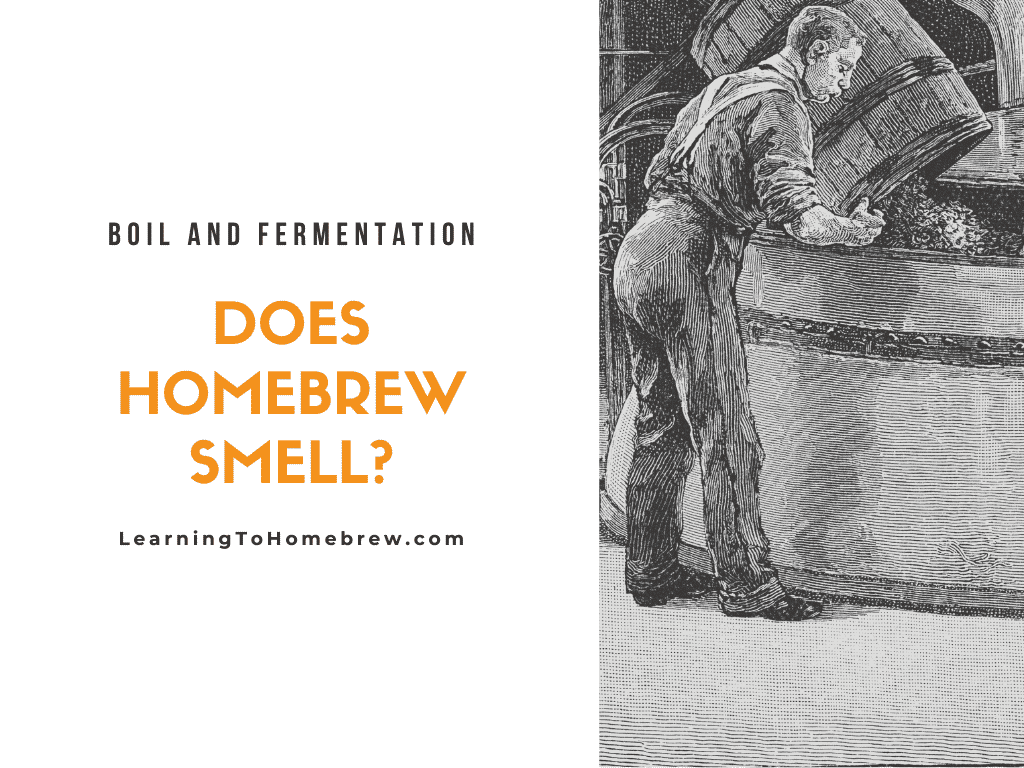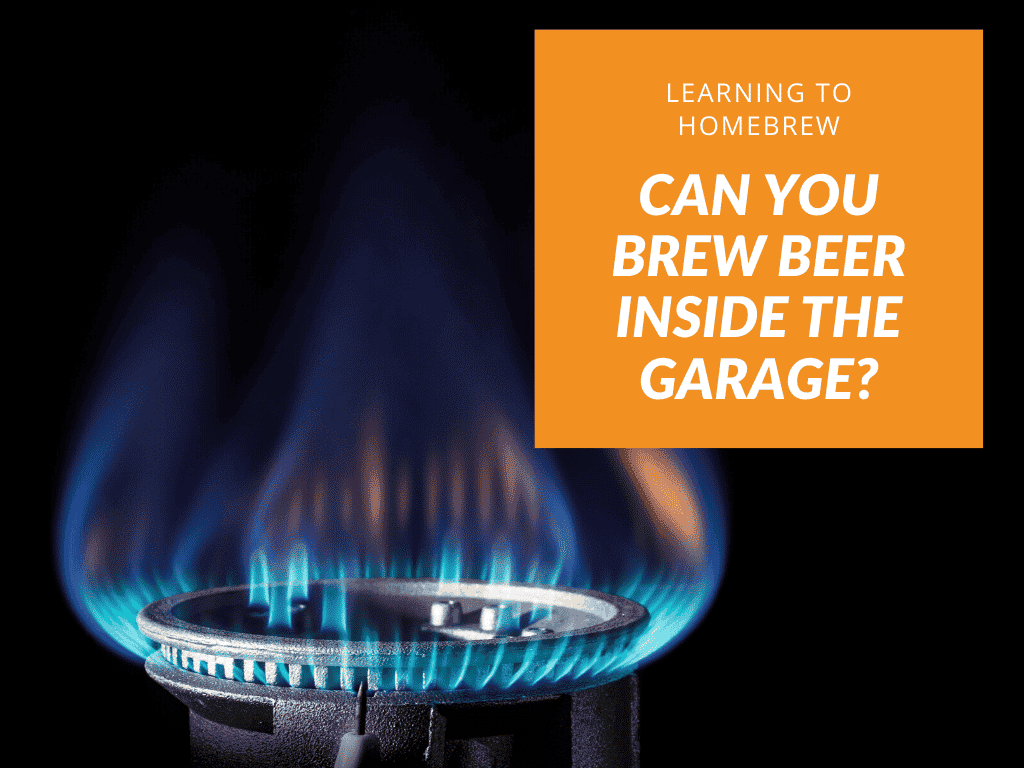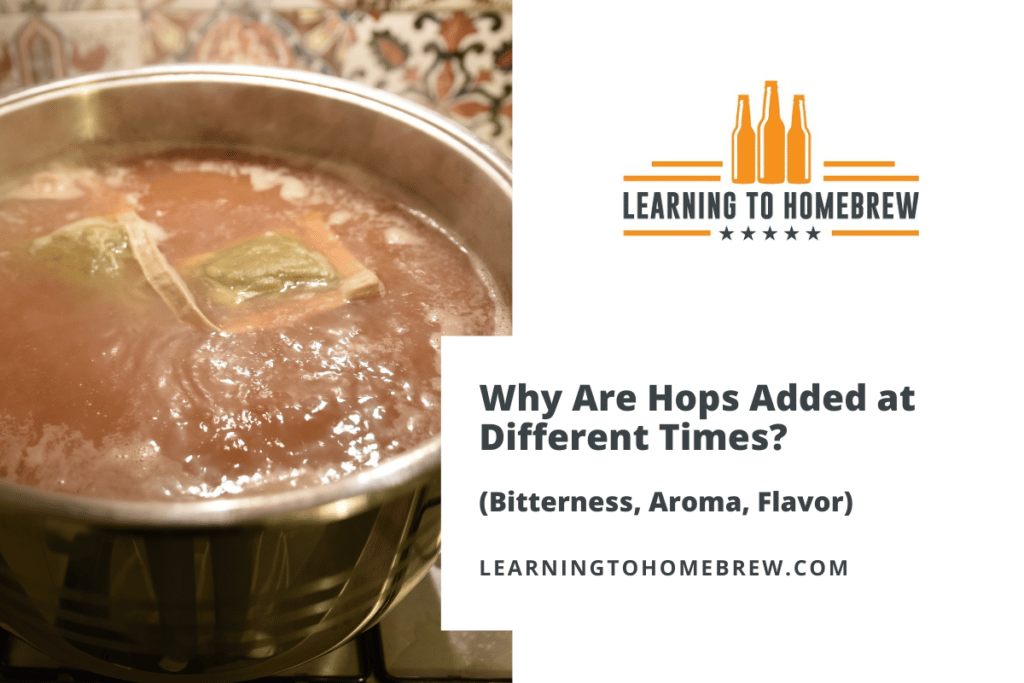Boiling wort is one of the first steps of making delicious homebrewed beer. In order to keep ratios correct, how much wort should a homebrewer expect to boil off in the process?
Homebrewers can expect to see 1-1.5 gallons of wort boil off per hour. Since most recipes recommend an hour-long boil, you should expect just over a gallon to boil off. Factors such as kettle size, burner type, temperature, and humidity will all affect the boil-off rate.
Keep reading for more on wort boil-off rates for 30, 60, and 90 minute boils, as well as how to calculate this rate yourself.
Topics We Cover
How much wort boils off while homebrewing beer?
The wort boil is a crucial component of making beer. Not only does it establish the flavors of the finished beer (wort is basically unfermented beer – it is sweet and malty without much complexity), it also sanitizes the liquid. Hops are also added during the boil to bitter and/or flavor the finished beer.
In this process, approximately 1 to 1.5 gallons of wort will boil off per hour, concentrating the liquid.
Amount of Beer (Final) | Boil Time | Evaporation Amount | Ideal Amount of Water (Starting) |
|---|---|---|---|
| 5 gal | 30 min | .5 gal | 5.5 gal |
| 5 gal | 60 min | 1-1.5 gal | 6-6.5 gal |
| 5 gal | 90 min | 2-2.5 gal | 7-7.5 gal |
| 10 gal | 30 min | .5 gal | 10.5 gal |
| 10 gal | 60 min | 1-1.5 gal | 11-11.5 gal |
| 10 gal | 90 min | 2-2.5 gal | 12-12.5 gal |
| 15 gal | 30 min | .5 gal | 15.5 gal |
| 15 gal | 60 min | 1-1.5 gal | 16-16.5 gal |
| 15 gal | 90 min | 2-2.5 gal | 17-17.5 gal |
There are a handful of factors that determine how much of the water in the wort will evaporate during the boil. Environmental influences include:
- Kettle size and shape
- Wind
- Humidity
- Ambient temperature
- Vigor of the boil
For instance, it will take longer to bring 30 gallons of wort to a boil than five gallons. If brewing outside, homebrewers have to take the temperature and wind into account, as well. A dry day will cause more of the water to evaporate, whereas a humid day will retain more water in the wort.
Keep reading for estimates on how much wort boils off at various times, as well as how to calculate the boil-off rate before brewing by testing your setup with water.
How much wort boils off in an hour?
Different recipes call for different boil times, with many of them recommending an hour.
Many recipes are written for about a 5 gallon batch of beer. In an hour, just over a gallon of wort will boil off.
An hour-long boil is a safe assumption in accomplishing everything the boil is meant to do:
- Sanitize the wort
- Create complexity in flavors
- Concentrate the wort
- Clarify the beer with the hot break
How much wort boils off in 30 minutes?
For impatient or pressed-for-time homebrewers, a 30-minute boil may have to suffice.
Approximately half a gallon of wort will boil off in 30 minutes. Since the water in the wort will not have as much time to evaporate in a 30-minute boil, the wort will be less concentrated than a 60- or 90-minute boil.
To account for the diminished concentration, homebrewers will want to adjust their recipes if using a shorter boil time than recommended. There are some recipes available that recommend a quick 30-minute boil.
How much wort boils off in 90 minutes?
Some recipes recommend boiling wort for 90 minutes for more complex and concentrated flavors or for greater hop utilization.
Expect nearly 2 to 2.5 gallons of wort to boil off in 90 minutes.
For a 5 gallon batch, it is recommended that you start with close to 8 gallons of pre-boil wort.
How to determine your boil off rate for brewing
In order to determine how much liquid you will need to start with in order to accommodate for the boil-off rate, you can set up an experiment ahead of time using water.
Using the same conditions you would use on brew day – indoor/outdoor locale, the kettle, heating mechanism, etc. – fill the kettle with a specific measurement of water. I recommend you use the same amount of water as described in the first recipe you intend to make, marking its level directly on the kettle. Boil for 60 minutes, and then measure the volume of water you are left with.
By keeping every factor the same with the experiment as you would on brew day, then the only difference will be that you’ll be boiling wort, rather than water, with similar boil-off results.
Boil-off rate calculator
There is a simple calculation you can use to determine your boil off rate no matter how long you boil your water:
(Beginning Volume – End Volume)/Time in Hours = Hourly Evaporation Rate
For example, if the beginning volume was 8 gallons and the end volume came to 6.5 gallons after a 90-minute boil then you have a 1 gallon/hour evaporation rate.
(8-6.5)/1.5 = 1 gallon/hour evaporation rate.
Related Questions
Have more questions about boiling wort? Here are answers to some commonly asked questions.
How vigorous should you boil wort?
When boiling the wort, your first consideration should be safety. Use a large enough kettle to account for the action of the boil and to prevent a boil-over, which isn’t just messy but can also be dangerous.
With enough headspace to prevent any accidents, the boil should be higher than a simmer but not an out-of-control boil. A consistent, rolling boil is preferred. This is to ensure sterilization of the beer as well as clarity and development of flavors.
In addition, do not cover the pot to bring it to boiling more quickly. The sudden temperature change of removing a lid can interact with the steam within the foam, almost assuredly causing a boil-over.
What is the wort boiling temperature?
It is a common misconception that wort boils at the same temperature as water: 212℉. However, since wort is comprised of more elements than just water, this isn’t the case.
Wort boils at over 212℉. The exact temperature at which it will reach a boil is determined by the wort’s gravity as well as your elevation.
Homebrewers who live at or close to sea level will likely experience their wort boiling at just above 212℉. For every 1,000 feet above sea level, the boiling point of beer decreases by a degree.
For best results, homebrewers are encouraged to determine their altitude before boiling wort in order to adjust ratios if necessary.
For the web story version of this article click here!





